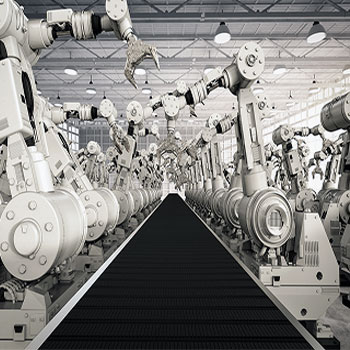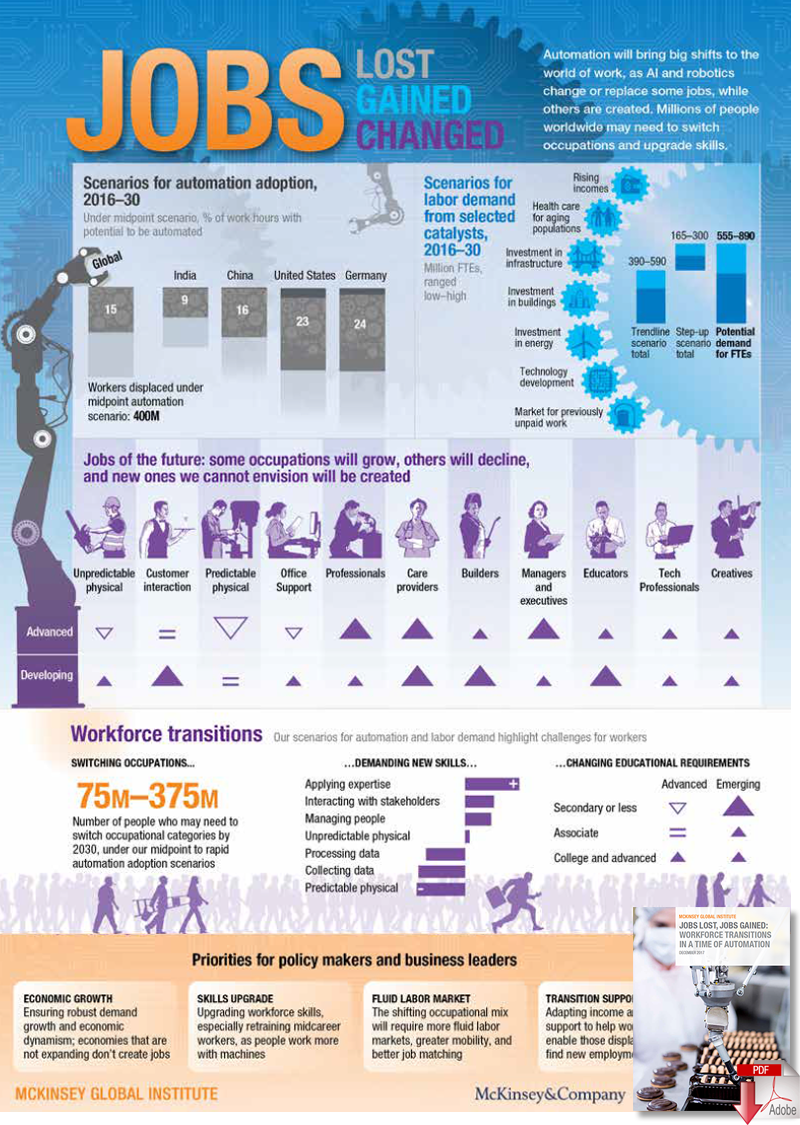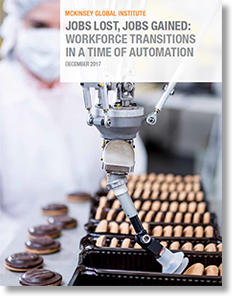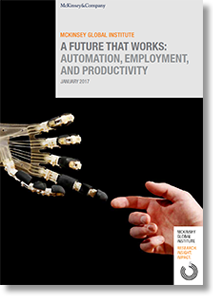Robotic Automation to Supplant 800 Million Jobs Worldwide by 2030

As many as 800 million workers worldwide may lose their jobs to robots and automation by 2030, equivalent to more than a fifth of today’s global labor force according to a new report by the research arm of McKinsey & Co.
A new study by the McKinsey Global Institute estimates that between 400 million and 800 million of today’s jobs will be automated by 2030.
The research adds a fresh perspective to what is becoming an increasingly concerning picture of the future employment landscape.
“We’re all going to have to change and learn how to do new things over time,” institute partner Michael Chui told Bloomberg.
In the United States, it appears it’s the middle class that has the most to fear, with office administrators and construction equipment operators among those who may lose their jobs to technology or see their wages depressed to keep them competitive with robots and automated systems.
As many as 375 million workers around the world may need to switch occupational categories and learn new skills.
What the Future of Work Will Mean for Jobs, Skills, and Wages
The technology-driven world in which we live in is a world filled with promise but also challenges.
Cars that drive themselves, machines that read X-rays, and algorithms that respond to customer-service inquiries are all manifestations of powerful new forms of automation.
Yet even as these technologies increase productivity and improve our lives, their use will substitute for some work activities humans currently perform - a development that has sparked much public concern.
Building on their January 2017 report on automation, McKinsey Global Institute’s latest report, Jobs lost, jobs gained: Workforce transitions in a time of automation, assesses the number and types of jobs that might be created under different scenarios through 2030 and compares that to the jobs that could be lost to automation.
The results reveal a rich mosaic of potential shifts in occupations in the years ahead, with important implications for workforce skills and wages.
The key finding is that while there may be enough work to maintain full employment to 2030 under most scenarios, the transitions will be very challenging - matching or even exceeding the scale of shifts out of agriculture and manufacturing we have seen in the past.
- What impact will automation have on work?
- What are possible scenarios for employment growth?
- Will there be enough work in the future?
- What will automation mean for skills and wages?
- How do we manage the upcoming workforce transitions?
Jobs Lost, Jobs Gained: Workforce Transitions in a Time of Automation
Related Resources
Jobs Lost, Jobs Gained: Workforce Transitions in a Time of Automation
This report examines questions surrounding automation - will there be enough work in the future to maintain full employment, and if so what will that work be? which occupations will thrive, and which ones will wither? Download Now!
A Future That Works: Automation, Employment, and Productivity
This detailed report contributes to McKinsey Global Institute’s mission to help business and policy leaders understand the forces transforming the global economy, identify strategic locations, and prepare for the next wave of growth. Download Now!
More Resources on Automation
Article Topics
McKinsey News & Resources
2024 Global Logistics Outlook: Crisis mode lingers An Increasingly Digital Procurement Function Lacks Talent Required for Future Needs New McKinsey survey highlights steps companies are taking to stay on top on global trade processes 2023 State of Logistics: Third Party Logistics (3PL) Ocean Cargo: Carriers, shippers continue to navigate choppy waters Could Climate Become The Weak Link In Your Supply Chain? 7 Actions to Drive Demand Planning During the COVID-19 Pandemic and Prepare for the “Next Normal” More McKinseyLatest in Warehouse|DC
Spotlight Startup: Cart.com Walmart and Swisslog Expand Partnership with New Texas Facility Taking Stock of Today’s Robotics Market and What the Future Holds U.S. Manufacturing Gains Momentum After Another Strong Month Biden Gives Samsung $6.4 Billion For Texas Semiconductor Plants Walmart Unleashes Autonomous Lift Trucks at Four High-Tech DCs Plastic Pollution is a Problem Many Companies are Still Ignoring More Warehouse|DC
















